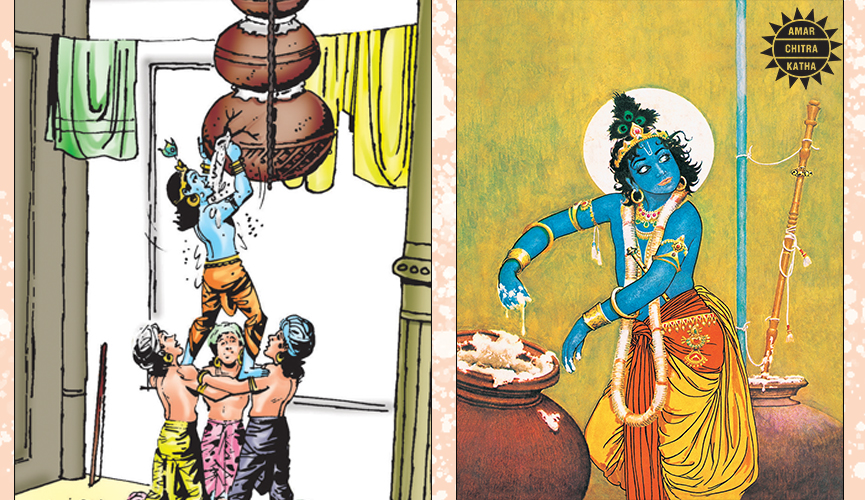Gokulashtami, or the birth anniversary of Lord Krishna, is one of India’s most beloved festivals. In Maharashtra, celebrations in most places are largely centred around the dahi handi. Almost every neighbourhood sees young boys and girls forming intricate pyramids to reach the pot of food strung up high above. While dahi handi literally translates to ‘pot filled with curd’, this description is not exactly accurate, since the pot actually contains a specially made festive dish called ‘Gopalkala’.

Gopalkala is a typical Maharashtrian, yoghurt-based dish which is filled in the dahi handi and also offered as prasad on the festive day. This dish contains a myriad of ingredients such as curd, milk, cream, puffed rice, flattened rice, pulses, cucumber, guavas, apples, spices, pickles and much more. The absence of an exact recipe is one of the most interesting aspects of Gopalkala and it ties in with the significance of the dish itself.
Lord Krishna is believed to have favoured curd and other dairy products, and so, they occupy a prime position in Gopalkala. However, apart from curd, the other ingredients of the dish are largely variable, to signify the importance of equality and togetherness.
According to common customs, Gopalkala is meant to be prepared potluck style, with members of a neighbourhood or community each bringing one or two ingredients of the dish, which are all mixed together in the end. Since communities are made up of economically disparate families, the inclusion of common household foods such as spices or flattened rice is significant in promoting togetherness despite outer differences. People are able to bring whatever food they have at home and become part of the festivities with their communities.
Lord Krishna is known to be one of the most humble gods in our mythology. Having spent his childhood as a cowherd among milkmaids and farmers, Krishna personifies the values surrounding community, equality and solidarity. Thus, Gopalkala is not simply a festive dish or a prasad. Rather, it is a material reminder for people to inculcate the values Lord Krishna stood for.





